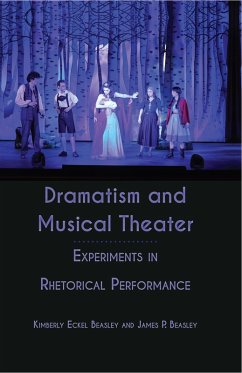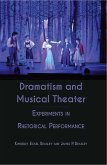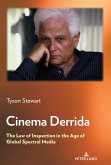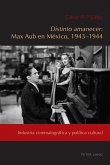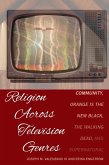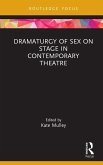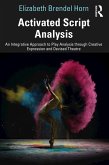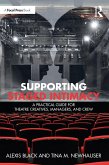Dramatism and Musical Theater: Experiments in Rhetorical Performance is an innovative workbook for both students and teachers in advanced communication performance. Meeting at the nexus of English composition, advanced rhetoric, theater, music, and drama, this book utilizes Kenneth Burke's method of dramatism to discover the motives inherent in performance practices, whether they be in the classroom or on the stage. In this book Kimberly Eckel Beasley and James P. Beasley take the five corners of the dramatistic pentad (act, scene, agent, agency, and purpose) and demonstrate their utilization in performance analysis. The authors then correlate those performance practices with the production of five contemporary musicals: Little Women, Aida, Street Scene, Into the Woods, and Children of Eden in order to emphasize the use of the dramatistic pentad in character, scene, and staging direction. By doing so, the book highlights dramatism as a performance practice necessary for effective participation in artistic communities.
Dramatism and Musical Theater: Experiments in Rhetorical Performance is also an indispensable guide for teachers and directors to successfully navigate the challenges of collegiate theatrical production.
Dramatism and Musical Theater: Experiments in Rhetorical Performance is also an indispensable guide for teachers and directors to successfully navigate the challenges of collegiate theatrical production.
Dieser Download kann aus rechtlichen Gründen nur mit Rechnungsadresse in A, D ausgeliefert werden.
"As a former Director of Forensics, who has judged a lot of Rhetorical Criticism and Communication Analysis rounds, and as an Equity Actor and Professor of Dramatic Arts, I am fascinated by the approach of this text. Dramatism and Musical Theater: Experiments in Rhetorical Performance is an innovative, insightful, and informed approach to the practice of performance." -Jeff Green, Professor and Department Chair, Theatre, Communication, and Media Arts, Georgia Southwestern University
"Kimberly Eckel Beasley and James P. Beasley deliver rivetingly insightful approaches to Burkean Dramatism as a heuristic for creating and sustaining effective rhetorical performances. Framed within the timespan of the early days of the divisive Trump administration and concluding toward its demise, the book artfully examines how musical theater is especially capable of creating choratic spaces of potential for unity. Dramatism and Musical Theater: Experiments in Rhetorical Performance seems to be made for this moment, yet it also illuminates a return to the interdisciplinary value of writing, rhetoric, and theater pedagogy. The convergence of these scenes of rhetorical activity manifests a kairotic resacralization of the rhetorical canon of delivery. The book does more than simply explain 'the pentad' and imagine rhetors will know what to do with it. Instead, by sharing a sense of who Burke was and the range of his hopes, Beasley and Beasley offer Kenneth Burke's pentadic pedagogical approach in ways that reasonably reframe both written and theatrical performances as acts. When seen as acts through the pentad, we are better able to explore motivation and situatedness from within scenes of our performances, our lives, all toward increasingly choratic, and therefore at least momentarily 'unified,' participation in rhetorical performances, in life." -Dr. Bonnie Lenore Kyburz, Independent Scholar; Author of Cruel Auteurism: Affective Digital Meditations Toward Film-Composition

